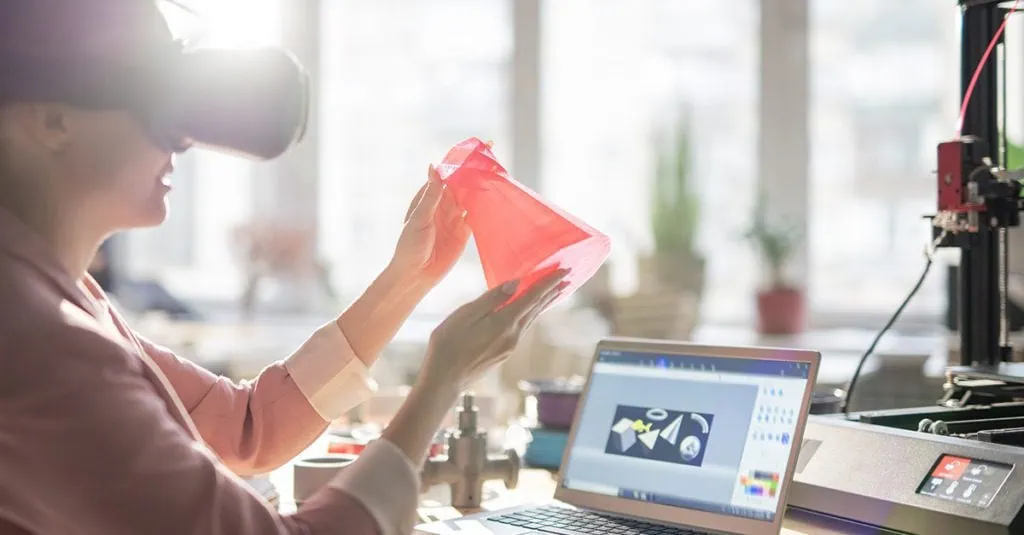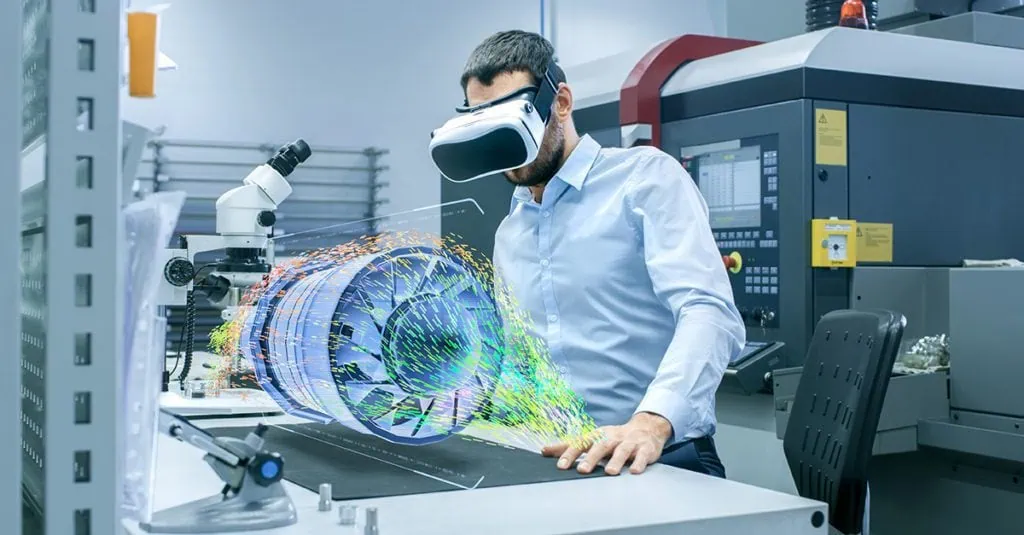This article delves into why companies should adopt Virtual Reality technology now to reap the early harvest of business opportunities when the Metaverse comes to life.
If you have been following the trajectory of recent advancements in modern technologies, each is headed towards each other, bound for a constructive collision. Another Big Bang, but a man-made one which already has a name, ‘The Metaverse’ – a spatial-virtual realm poised as the next frontier in the human timeline.
We are assuming you are somewhat familiar with Metaverse, (Somewhat because it would be foolhardy to precisely define it), let’s get straight to elaborating – ‘why do businesses need to become VR-friendly before the Metaverse arrives’?
The Metaverse could very well be the place where we live, meet, play, socialize and satiate our unquenchable appetite for content. NFT mania is a clear sign that the demand for ‘Metaversal assets and products’ will be huge in the coming years. It will also mean that businesses will need to rethink their sales and marketing strategies to sell these products and services that people can access with the existing VR and AR tech.
Inevitably so, companies will have to befriend Virtual Reality to become Metaversal. So why not start now? Doing so early on will not only put you at advantage point but help skip the competitive tug of war to rope in a new customer base.
So we worked out a few good reasons why becoming VR-savvy can help businesses gain a competitive edge in the Metaverse. Must read: How VRdirect opens the door to Metaverse.

Competitive advantage
Companies with Metaverse-ready products or services will face little or no competition at the initial stages, depending on the uniqueness of the business idea. The early move of adopting Virtual Reality will give organizations the necessary headstart to create better products than their competitors, who will struggle to catch up.
A Metaverse-ready infrastructure and framework
Companies who embrace VR early will get time to create a more tried and tested, flexible VR infrastructure and framework to churn or tweak Metaversal products and services quickly.
Insight into VR challenges
Remodeling your current products to Virtual Reality format helps gauge challenges in creating immersive VR experiences and realistic 3D models of your products. And since nothing less than realism will be accepted when the Metaverse comes calling, you will have the necessary insights into making your VR products more acceptable and sellable.
Brand loyalty
People tend to believe in time-tested products and are willing to pay a higher premium for the sheer timelessness of a product. Being one of the first Metaversal businesses will inevitably become an invaluable asset over the years, assuming the organization adapts to the rapidness and ambiguity of the spatial internet.
VR-acquainted employees
Introducing your employees to Virtual Reality, especially the marketing team, will give them the time and the headstart to brainstorm ideas while getting used to the new experience. They must be comfortable and understand the technical challenges in user experience before designing customer-centric, engaging campaigns from the user's point of view. Read the article: Revolutionising Virtual Reality content marketing.
Offer better customer experiences
Customers today are demanding and do not settle for mediocre. Having better insights, the know-how of VR, and ready infrastructure will come in handy to create experientially unique business offerings. Additionally, early feedback will make the job of your VR-experienced marketing team easier to design immersive and appealing products.
Avoid the laggard penalty
Laggard here means late or slow to move. Companies who play safe and wait until the proposed system is largely accepted end up paying higher premiums when the demand for the proposed tech goes higher. On the other hand, the risk-takers who foresee the inevitability of Metaverse will reap the benefits of listening to their gut. As the saying goes, fortune favors the brave.
Find pathways to return on investment
Investing now rather than later will give businesses more time to find and create a revenue-oriented Metaverse experience.
Adapt early to newer technologies
Metaverse is possible only with the amalgamation of many technologies to nurture its virtual ecosystem. As the Metaverse landscape improves, companies will need to adapt to newer-supporting technologies. Being VR-wise early will allow businesses to invest time and resources into learning the newer tech while competitors are caught scratching heads figuring out the fundamentals.
Revolutionize your Business/Brand Presence
Even though Metaverse looks inevitable, it is a distant reality, which is a good thing as it buys you time to play around with Virtual Reality. But that does not mean that one does not benefit from VR tech immediately, in the current scheme of things.
Virtual Reality is an existing technology, which is being applied, left, right, and center at all organizational and business fronts. From training employees to product prototyping and demonstrations to creating more immersive presentations, the use cases of VR are endless. Here are some existing use cases of how companies are using VR today.






